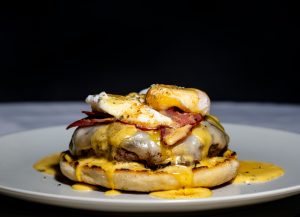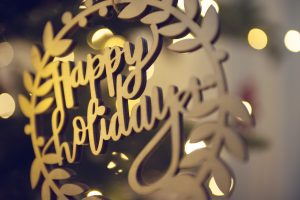Acupuncture
What are We Actually Craving, in Our Cravings?
 Why do many women crave chocolate or dairy more while on their menses? Why do men generally crave beer more than women? Why do some people crave sweets more at night, or wake up in the morning feeling everything from ravenous to having no appetite at all? And how do these tendencies influence future tendencies within our bodies?
Why do many women crave chocolate or dairy more while on their menses? Why do men generally crave beer more than women? Why do some people crave sweets more at night, or wake up in the morning feeling everything from ravenous to having no appetite at all? And how do these tendencies influence future tendencies within our bodies?
Western medicine has no clue—“some people are just like that,” they shrug, or my personal favorite: “That’s normal (as you get older).” Without an intricate understanding of the paradigm of internal (Chinese) medicine, unique preferences and/or habits can be difficult to explain, hence impossible to change.
“I just have a sweet tooth,” people say, which is an expression. What if your will power was not entirely psychological, but partially a result of the state of your internal organs, making it much harder for you to resist temptation than others?
Dryness is an epidemic. It stands to reason in a society that over-prioritizes the yang, masculine energy. While yin is represented by rest, stoppage, sleep, coolness and moisture, yang is work, working out, going out, staying out late, everything out; burning it at all ends, not to mention excessive caffeinated diuretics and overly seasoned or spicy foods.
In Chinese Medical terms stress “depletes the healthy body fluids,” as do NSAIDS, most meds, skipping breakfast, poor sleep, overwork, over-working out, or excessive masturbation. Unfortunately, these are not fluids that can be supplemented through hydration. While it’s great to hydrate, from our perspective this loss is of metabolic/organ fluids that can be restored only through proper rest, herbal medicine, and diet, namely eggs and red meat.
In the meantime, whether consciously or not, we are all craving the ultimate yin. Think breastfeeding: An opportunity to stop everything, be comforted and nuzzled by some soft, fatty, support structure, nourished by its sweet, thick, delicious juice. Since few of us have that opportunity, we opt instead for ice cream or cheese, boba tea, or some delectable hazy IPA—anything thick, sweet, and nurturing in lieu of the adult version of nursing, which might be an early bedtime after a relaxing day. Imagine that. Do we deserve such a thing?
“Nighttime belongs to the blood,” is an expression in Classical Medicine that refers to our healthy body fluids being in charge of evening operations, whereas cellular energy and sympathetic manage the day hours. When a symptom, such as sweet cravings, is worse at night, it further confirms fluid deficiency as part of its etiology. What many women are craving during their cycle, is frankly, more blood. Most don’t have the opportunity to necessarily get more rest, eat more red meat or go to sleep earlier (though if you do, you should!). Instead, they reach for sweets and/or dairy to temporarily satiate the desire to supplement yin. Unfortunately, in doing so this creates more dampness in the microbiome, which makes it harder for the organs to then convert future foods into healthy nutrients, which causes more cravings, and so on. Healthier options for sticky, yin-nourishing substances might be nut butters, smoothies, non-dairy yogurts, or baked apples with some honey.
“Yin-nourishing herbs” are damp. I always think of the foxglove root, one of the most herbs in our pharmacopeia, which looks, but does NOT at all taste like a chocolate brownie. It is rare to meet a patient, man or woman, who does not need some amount of foxglove to supplement lost fluids; although it is even more rare to meet someone whose gut is ready for it. Foxglove is thick and heavy, like boba tea or breastmilk, so if someone has weak digestion, loose stools, acid reflux, etc. it is probably not ideal for them. It is important in our “moments of weakness” to access at least enough will power to reach for healthier alternatives enough of the time, so as to protect our gut health—so that one day our herbalist will give us the green light to truly nourish our yin organ fluids with brilliant substances like foxglove.
Happy Holidays, 2023!

When I reflect on my 2023 from a Chinese Medical perspective, I would characterize it as “yang within yin,” which refers to a condition being active and invigorating within an outward and/or greater context of pacification or lethargy. Think when we feel exhausted in the middle of the night but for some reason are unable to get back to sleep. This is internal “yang exuberance” during the most “yin time of day” when the rest of our body beyond our ruminating mind is logically tired, yin, wishing to sleep.
The dominant theme and stand-out defining occurrence of my past year has been becoming a first-time homeowner obviously, plus resuming my identity as a suburbanite for the first time in 27 years, which is over three “jing cycles” for a man! A “jing cycle” refers to our stages of physiological aging and spiritual evolution. Those of men are 8 years, those of women are 7, as the latter are supposed to mature faster.
27 years is so long ago that this of course does not feel like any kind of return or reunion, but an entirely new and foreign endeavor, heightened by the fact that I am no longer the dependent child, but instead have a dependent child myself.
“Settling down,” whether into marriage, parenthood, suburbia, or all three, has a yin essence. All three contexts are inherently more introverted, more grounding and isolating, even if one chooses yang within yin, and continues to prioritize community and socialization as we do.
Owning a home has an equally yin-nourishing nature. It represents stability. It might even be metaphorical, in that we are no longer floating high above on the third, tenth, or twenty-first floor of some building, relatively closer to the sun, which is the ultimate yang. Instead, we are on the ground. We are responsible for the ground and might reap its benefits, as in freely walking barefoot. Thus far my favorite perk is the town pool in Summer, located a ten-minute walk from home and seems to act as a predictable nucleus where we can cross paths with local friends. POOL=WATER=YIN. The raucous kids at the pool would be yang within yin.
Within this suburban yin of stability, which the majority of the population aspire to and view as the trophy for a first half of life well-lived, is the chaotic yang of constant repairs, occasionally necessary renovations, and great cost of resources, whether financial or physiological. Things have finally calmed down for us in this regard—the first 4-6 months were brutal—and we are grateful to have finally arrived at our new baseline of random windows or bathroom doors simply not shutting all the way. We’ll take it. It’s like after a serious illness gets cured most of us would be totally content with the occasional bout of acid reflux or low back pain.
Professionally, this year I completed my second 8-month long, virtual herbal medicine workshop with mentor, Dr. Suzanne Robidoux, in Beijing. Thus far she has been my most valued and enlightening teachers since starting school 15 years ago, and I look forward to studying more with her in the future. However, for 2024 my agenda is to take a break from her courses to dive deeper into studies of our most classic medical text, the Shang Han Lun, as well as the famous, Master Tung’s approach to acupuncture, taught by my Tai Chi teacher and friend, Dr. Henry McCann. That is, as much as house crises and repairs permit.
There are some ways in this incarnation of life where I have felt a bit unlucky, and other ways where I feel very lucky. I sincerely feel very lucky that people come to me for healing and trust me to stick needles in them, not always with the softest touch, and prescribe them herbal medicine, not always with the sweetest flavor. This especially speaks volumes in a society that hardly educates or encourages the public on Eastern Medicine at all. I recognize it as a testament to every one of my patients’ courage and open minds, which in my opinion are two of the most important characteristics to take with us through life. I thank you all for possessing these qualities, for coming to my office this year, and I hope to see you next!
Healing Trauma with Acupuncture

Trauma can be emotional or physical and carries a weight with it for those who suffer from a traumatic event and the longer post-traumatic stress that can come from it. Fortunately, we live in a time where help is available. Since acupuncture subscribes to the whole mind/body/spirit healing approach to balancing energy and achieving complete wellness, it makes sense that acupuncture could be a helpful tool to treating various forms of trauma and its impact on both the mind and body. continue reading
3 Tips for Winter Self-Care
 With the shorter days and longer, colder nights of winter upon us, it is in our best interest to follow nature to best support well-being. Of course, to some degree it is relatively impossible for most of us to alter most things about our lifestyle based on the seasons. Modern society does not follow, nor concern itself with the Tao. The Tao does not make money nor promise love, and even if it could we are not learned enough in it to follow with much accuracy. Nevertheless, we can still do what we can when we can, make minor modifications, certain mindful choices whenever possible, as I would be remiss to not share.
With the shorter days and longer, colder nights of winter upon us, it is in our best interest to follow nature to best support well-being. Of course, to some degree it is relatively impossible for most of us to alter most things about our lifestyle based on the seasons. Modern society does not follow, nor concern itself with the Tao. The Tao does not make money nor promise love, and even if it could we are not learned enough in it to follow with much accuracy. Nevertheless, we can still do what we can when we can, make minor modifications, certain mindful choices whenever possible, as I would be remiss to not share.
- Stay warm… but not too warm! While Chinese Medicine is all about warmth, encouraging vasodilation over constriction, if you live in a climate that has the four seasons it does not benefit your “wei qi” (immune system) to never experience the conditions and elements at all. This does not mean go out wearing belly t-shirts, short sleeves, or no socks at the first weather report above 40 degrees. On the contrary, hats and scarves are highly recommended, as is not being overly sedentary or sheltered. A sheltered existence, whether literally or figuratively, creates a weaker shell. For our purposes we might think of our immune system as our shell. Even if just for a commute or walk around the neighborhood, it is important to get outside on most days, bundle up, and not fall too victim to the privilege of modern climate control.
- Sleep earlier. While the recommended bedtime in Summer is 11pm, in Winter it is 10pm. This doesn’t mean get into bed at 10pm, watch a movie until 12, and fall asleep around 12:20. It means to be unconscious at 10:00. For those of us this presents a challenge for, the earlier you can do the better. There is a biomedical belief that for healthy sleep habits, consistency of bedtimes is most important. If one goes to sleep at 1am a few nights out of the week, one should do so every night. From a Chinese Medical perspective, this is a bit like recommending if you eat pizza once a week you should do so daily, so that it is never able to shock your microbiome. Instead, we recommend making the healthiest possible choice as often as possible. Also, don’t eat pizza every week. I love pizza too, but let’s be honest. It’s fast food.
- More (red) meat), less raw food. I know it feels like Chinese Medicine doctors are always trying to get people to eat more red meat and less raw food, but that really is not the case. The summer is a time for both raw foods and red meat in moderation. There can be more days of veganism or pescatarianism in Summer, as excessive beef is too warm for most bodies on hot days. By contrast, Winter is the coldest, most yin time of year. It is the time to protect our bodies’ “yang qi,” or metabolic fire, as we observe in so many other animals as a time to store fat (you can begin your South Beach diet in April). The oppressive cold of yin requires balance in the form of yang-warming ingredients—think steak cooked with garlic, onions, or ginger. If you cannot consume red meat it is advisable to accentuate the warming spices. Please note, this does not mean hot sauce or red pepper, which is a bit to healthy spices what coffee is to much needed rest. It will give a temporary surge of warmth, but in the long run will dry out the healthy stomach fluids, which will make it more difficult to absorb nutrients and generate natural yang inside the body. Spicy food is not “yang,” any more than yelling or shouting is “strong.”
For my part what I can offer for the next few months is more moxibustion, heat lamps, and heated tables when indicated. Burning the mugwort herb on acupuncture points generates healthy warmth and organ fluids in a way that no other modality can, in my opinion. In biomedical terms, it reduces cartilage damage from inflammation by modulating the NF-κB signaling pathway. It also drops pain via the suppression of Cox-2, which is an inductible enzyme that is highly expressed with pain. Recall, one of the oldest Chinese Medicine maxims: Where there is pain there is stagnation. Where there is stagnation there is cold. This is why my office smells like an incense store in winter.
Acupuncture for Treating Leaky Gut Syndrome

There are a variety of gastrointestinal and autoimmune diseases that can contribute to what is known as leaky gut syndrome. So, what exactly is leaky gut syndrome? It’s close to exactly what it sounds like. Each one of us has semi-permeable guts. What that means is the mucous lining of our intestines is designed to absorb water and nutrients from our food. Your intestinal lining is responsible for acting as a barrier to bacteria. With leaky gut syndrome, your intestinal lining “leaks” allowing more water and nutrients through, but also potentially allowing toxic molecules to come through as well. continue reading


